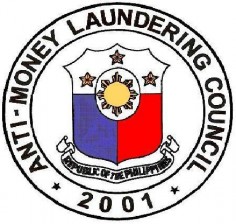
Congress is under pressure to pass amendments on the Amla or else face being black listed by the international Financial Action Task Force (FATF), before Congress goes into recess to give way to the May 2013 election campaign.
Senator Teofisto Guingona III however said that what they passed was not an assurance the Philippines will not be blacklisted.
“On February 18 we will know whether what we have passed is enough for us to get out of the dark grey list [either] upwards or go down to the blacklist,” he told reporters.
“FATF might just say: ‘sorry but what you passed, though you did pass something, is not enough,'” Guingona said.
The new version will require money changers, jewelry and precious metals dealers, real estate and pre-need firms to submit data on suspicious transactions to the Anti-Money Laundering Council but has waived off such a requirement for casinos.
The measure will make its way into the hands of President Benigno Aquino III, to be signed into law, after both chambers of the 15th Congress have ratified it.
On the removal of a provision requiring casinos to report to the AMLC when a suspected money launderer was in the premises, Senator Teofisto Guingona III said that they no longer argued against it because they were running out of time and must pass the law to avoid being blacklisted.
“It’s better to have a law than no law at all. Otherwise, we would end up in the blacklist,” Guingona had previously said. “It was a choice between being blacklisted for sure and the possibility of being blacklisted.”
He however said that the deletion of the provision on casinos was a big loss. “Ang laki ng butas na naiwan,” Guingona said.
He said that the Philippine Amusement and Gaming Corporation (Pagcor) did not want the provision on casinos. It was also seen as a deterrent to investors, Guingona said.
If ever the country would be placed in the blacklist, it would make it harder for overseas Filipino workers (OFWs) to send remittances into the country.
“Any money going to the Philippines or coming out of the Philippines, will have to be proven that it’s not dirty money [and] to prove it’s not dirty money [a lot of] requirements [would need to be complied with],” Guingona said.